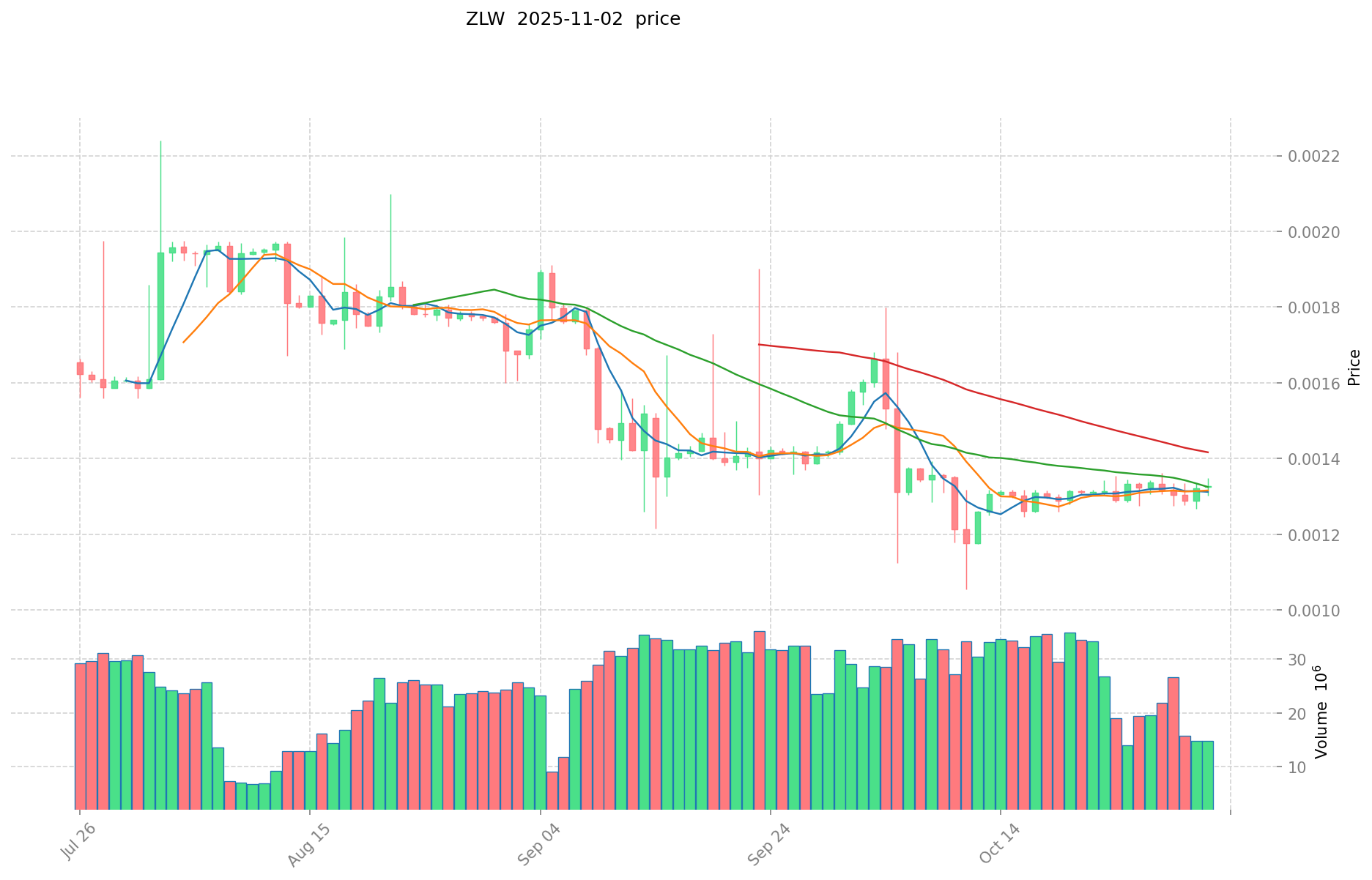What is ZLW: The Revolutionary Approach to Sustainable Urban Development
Zelwin's Positioning and Significance
In 2020, ZELWIN.com launched Zelwin (ZLW), aiming to solve the challenges of integrating digital assets with e-commerce.
As a platform combining digital assets and e-commerce, Zelwin plays a key role in online trading and e-commerce.
As of 2025, Zelwin has become a unique player in the crypto-ecommerce integration space, with 717 holders and an active development team. This article will delve into its technical architecture, market performance, and future potential.
Origin and Development History
Background of Creation
Zelwin was created by ZELWIN.com in 2020, aiming to solve the challenge of integrating cryptocurrency transactions with e-commerce platforms.
It was born in the context of growing interest in cryptocurrency adoption for real-world use cases, with the goal of providing a platform where users can seamlessly use digital assets for online shopping.
Zelwin's launch brought new possibilities for e-commerce platforms and cryptocurrency users.
Important Milestones
- 2020: Platform launch, achieving integration of digital asset trading with e-commerce.
- 2021: Major price surge, with ZLW reaching its all-time high of $8.24 on August 26.
- 2025: Continued development and adaptation to market conditions, with the price reaching a new low of $0.00105488 on October 11.
With the support of the ZELWIN.com team, Zelwin continues to optimize its technology, security, and real-world applications.
How Does Zelwin Work?
Decentralized Control
Zelwin operates on a decentralized network of computers (nodes) spread across the globe, free from control by banks or governments. These nodes collaborate to validate transactions, ensuring system transparency and attack resistance, giving users greater autonomy and improving network resilience.
Blockchain Core
Zelwin's blockchain is a public, immutable digital ledger that records every transaction. Transactions are grouped into blocks and linked through cryptographic hashes to form a secure chain. Anyone can view the records, establishing trust without intermediaries.
Ensuring Fairness
Zelwin uses a consensus mechanism to validate transactions and prevent fraudulent behaviors such as double-spending. Participants maintain network security through specific activities and receive ZLW rewards.
Secure Transactions
Zelwin uses public-private key encryption technology to protect transactions:
- Private keys (like secret passwords) are used to sign transactions
- Public keys (like account numbers) are used to verify ownership
This mechanism ensures fund security, while transactions remain pseudonymous.
Zelwin is available on both Ethereum and Binance Smart Chain networks, providing users with flexibility in terms of transaction speed and costs.
Zelwin (ZLW) Market Performance
Circulation Overview
As of November 02, 2025, Zelwin's circulating supply is 72,331,834.1691 tokens, with a total supply of 300,000,000 tokens.
Price Fluctuations
Zelwin reached its all-time high of $8.24 on August 26, 2021.
Its lowest price was $0.00105488, recorded on October 11, 2025.
These fluctuations reflect market sentiment, adoption trends, and external factors.
Click to view the current ZLW market price

Zelwin (ZLW) Ecosystem Applications and Partnerships
Core Use Cases
Zelwin's ecosystem supports various applications:
- E-commerce: ZELWIN.com, providing global commodity market trading.
- Digital Assets: Platform combines digital assets with e-commerce, offering token trading and deposit refunds.
Strategic Collaborations
Zelwin has established a team of 11 experts, including developers, designers, sales specialists, programmers, blockchain experts, lawyers, economists, PR and marketing professionals, HR specialists, and e-commerce experts. These partnerships provide a solid foundation for Zelwin's ecosystem expansion.
Controversies and Challenges
Zelwin faces the following challenges:
- Market Volatility: Significant price fluctuations from all-time high of $8.24 to current low levels.
- Adoption: Attracting users and merchants to the platform in a competitive e-commerce landscape.
- Regulatory Concerns: Potential scrutiny due to the combination of digital assets and e-commerce.
These issues have sparked discussions within the community and market, driving Zelwin's continuous innovation.
Zelwin Community and Social Media Atmosphere
Fan Enthusiasm
Zelwin's community shows some activity, with 717 holders of the ZLW token. On X (formerly Twitter), posts and hashtags related to Zelwin occasionally gain traction. Token price movements and platform updates tend to ignite community interest.
Social Media Sentiment
Sentiment on X appears mixed:
- Supporters praise Zelwin's unique e-commerce and digital asset integration, viewing it as a potential "future of online shopping".
- Critics focus on price volatility and adoption challenges.
Recent trends show cautious optimism among some community members.
Hot Topics
X users discuss Zelwin's e-commerce integration, token utility, and market performance, highlighting both its innovative potential and the challenges of gaining mainstream adoption.
More Information Sources for Zelwin
- Official Website: Visit Zelwin's official website for features, use cases, and latest updates.
- Social Media: On X, Zelwin uses the handle @ZELWINofficial, with posts covering platform updates, community events, and e-commerce news.
Zelwin's Future Roadmap
- Ecosystem Goal: Expand the global commodity market and digital asset integration
- Long-term Vision: Become a leading e-commerce platform with integrated digital asset capabilities
How to Participate in Zelwin?
- Purchase Channels: Buy ZLW on Gate.com
- Storage Solutions: Use secure wallets compatible with ERC-20 and BEP-20 tokens
- Platform Usage: Engage with the ZELWIN.com platform for e-commerce and digital asset transactions
- Community Engagement: Follow official social media channels for updates and discussions
Summary
Zelwin redefines digital commerce by integrating blockchain technology with e-commerce, offering global commodity trading and digital asset management. Its unique platform, active development team, and market presence set it apart in the cryptocurrency space. While facing market volatility and adoption challenges, Zelwin's innovative approach to combining e-commerce with digital assets positions it as an interesting project in the decentralized technology landscape. Whether you're a newcomer or an experienced player, Zelwin is worth watching and exploring in the evolving world of blockchain-based e-commerce.
Share
Content